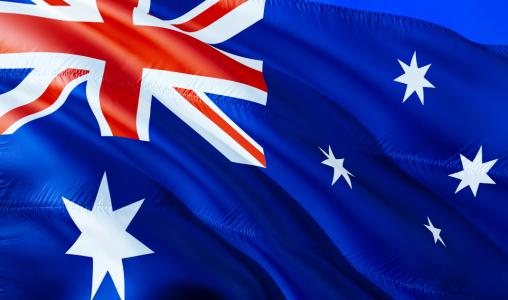This Beloved Aussie Slang is Now Taboo – Find Out Which Phrase is Off-Limits!
By
Gian T
- Replies 52
The Australian vernacular is as rich and vibrant as the coral reefs that adorn our coasts. It's a language peppered with colloquialisms that can baffle outsiders but warm the hearts of those who understand its casual charm. However, it seems that even in the land down under, where 'G'day' and 'No worries' are as common as kangaroos, there's a shift happening in the way we communicate. A classic Aussie phrase has recently come under scrutiny, leaving many to wonder if our laid-back linguistic culture is under threat.
In a tale that has left many Aussies scratching their heads, a deli worker with over five years of experience was chastised for calling a customer 'mate'. This term, as synonymous with Australian identity as the Southern Cross, was deemed 'unprofessional' by the customer, sparking a debate about the appropriateness of such informal language in a service setting.
The incident unfolded in a fruit and vegetable shop, where the worker, a young woman known for her polite and courteous demeanour, was taken aback when a customer – believed to be Australian himself – requested she refrain from using the term. Her father shared the story on social media, expressing his confusion and concern over the changing perceptions of what constitutes professionalism.
The response online was swift and, for the most part, supportive of the deli worker. Many Aussies rallied to her defence, expressing shock that the friendly and warm phrase could cause offence. Comments ranged from empathetic to humorous, with one person quipping, 'I think old mate needs to chill out.' Others shared their own experiences, with retail workers recounting similar encounters where the term 'mate' was met with hostility.
Yet, not everyone was on the side of the colloquialism. Some argued that 'mate' is too casual for certain professional environments, suggesting that it doesn't reflect the retail relationship well. This perspective, though less popular, highlights a growing tension between traditional Aussie informality and a more polished, perhaps globalised, approach to customer service.
The debate raises important questions about the evolution of language and etiquette in the workplace. Is it possible that the Australian penchant for informality is at odds with a world that increasingly values formality and professionalism? Or is this an isolated incident, a clash of personal preferences rather than a broader cultural shift?
For many Australians, being addressed as 'mate' by a retail worker is a sign of camaraderie and approachability. It's a term that levels the playing field, embodying the egalitarian spirit that many of us hold dear. As one commenter noted, 'It's casual, but not unprofessional or rude. Australian culture is a casual culture.'
Yet, it's also important to recognise that language is fluid, and what's acceptable in one context may not be in another. While 'mate' may be perfectly appropriate in a deli, where the atmosphere is more relaxed, it might not be the best choice in a high-end boutique or a formal business meeting.
As we navigate these changing linguistic landscapes, it's crucial to maintain a balance between preserving our cultural identity and adapting to new social norms. Perhaps the key is to read the room – or the shop, in this case – and understand that the richness of the Australian language allows for both 'mate' and 'sir' to coexist, each finding their place in the diverse tapestry of our interactions.

So, dear members of the Seniors Discount Club, we turn to you: What do you think about the use of 'mate' in customer service? Is it a term of endearment, a relic of a bygone era, or simply a word that should be used with discretion? Share your thoughts and experiences in the comments below – we'd love to hear your take on this uniquely Aussie debate!
In a tale that has left many Aussies scratching their heads, a deli worker with over five years of experience was chastised for calling a customer 'mate'. This term, as synonymous with Australian identity as the Southern Cross, was deemed 'unprofessional' by the customer, sparking a debate about the appropriateness of such informal language in a service setting.
The incident unfolded in a fruit and vegetable shop, where the worker, a young woman known for her polite and courteous demeanour, was taken aback when a customer – believed to be Australian himself – requested she refrain from using the term. Her father shared the story on social media, expressing his confusion and concern over the changing perceptions of what constitutes professionalism.
The response online was swift and, for the most part, supportive of the deli worker. Many Aussies rallied to her defence, expressing shock that the friendly and warm phrase could cause offence. Comments ranged from empathetic to humorous, with one person quipping, 'I think old mate needs to chill out.' Others shared their own experiences, with retail workers recounting similar encounters where the term 'mate' was met with hostility.
Yet, not everyone was on the side of the colloquialism. Some argued that 'mate' is too casual for certain professional environments, suggesting that it doesn't reflect the retail relationship well. This perspective, though less popular, highlights a growing tension between traditional Aussie informality and a more polished, perhaps globalised, approach to customer service.
The debate raises important questions about the evolution of language and etiquette in the workplace. Is it possible that the Australian penchant for informality is at odds with a world that increasingly values formality and professionalism? Or is this an isolated incident, a clash of personal preferences rather than a broader cultural shift?
For many Australians, being addressed as 'mate' by a retail worker is a sign of camaraderie and approachability. It's a term that levels the playing field, embodying the egalitarian spirit that many of us hold dear. As one commenter noted, 'It's casual, but not unprofessional or rude. Australian culture is a casual culture.'
Yet, it's also important to recognise that language is fluid, and what's acceptable in one context may not be in another. While 'mate' may be perfectly appropriate in a deli, where the atmosphere is more relaxed, it might not be the best choice in a high-end boutique or a formal business meeting.
As we navigate these changing linguistic landscapes, it's crucial to maintain a balance between preserving our cultural identity and adapting to new social norms. Perhaps the key is to read the room – or the shop, in this case – and understand that the richness of the Australian language allows for both 'mate' and 'sir' to coexist, each finding their place in the diverse tapestry of our interactions.
Key Takeaways
- A deli worker was chastised for calling a customer 'mate', which they deemed unprofessional.
- The incident led to a debate on social media about the appropriateness of the word 'mate' in a retail setting.
- Some social media users defended the use of 'mate' as a warm and friendly Aussie phrase, while others believed it was too casual for some professional environments.
- Opinions were divided, with a group suggesting 'mate' is appropriate in a deli and part of Australian culture, while others argued it should be avoided in professional settings.
So, dear members of the Seniors Discount Club, we turn to you: What do you think about the use of 'mate' in customer service? Is it a term of endearment, a relic of a bygone era, or simply a word that should be used with discretion? Share your thoughts and experiences in the comments below – we'd love to hear your take on this uniquely Aussie debate!








